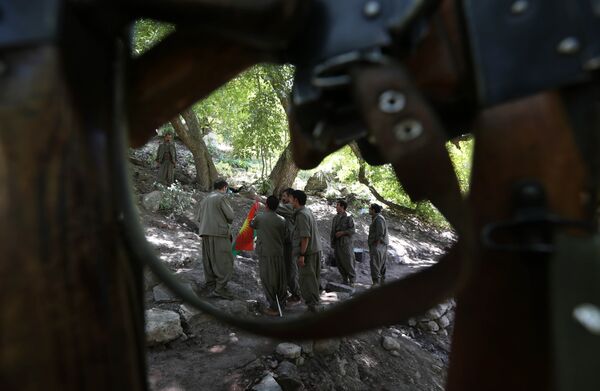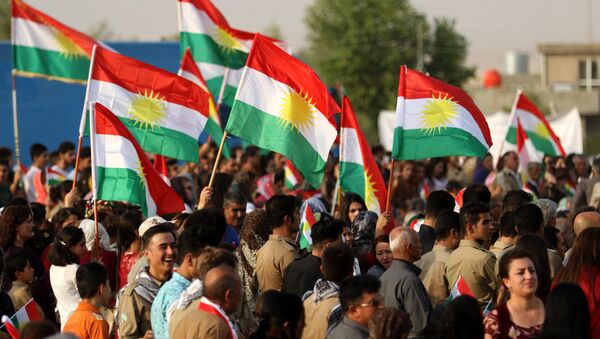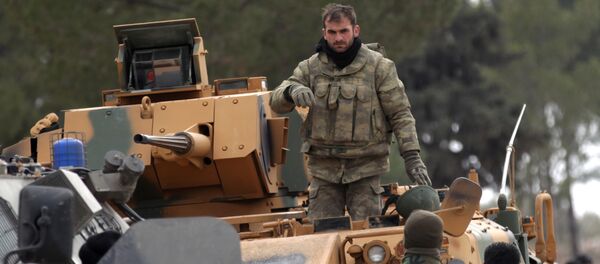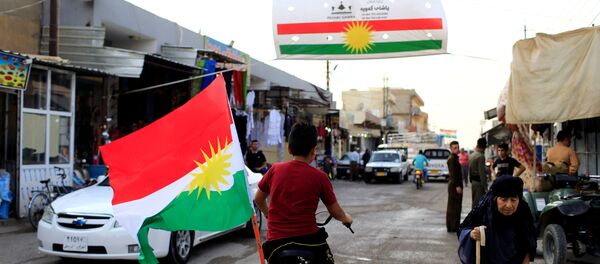Speaking to Sputnik Persian, Pashang, a researcher at the London-based International Peace Studies Center (IPSC), explained that Tehran's concerns over the creation of an independent Kurdish state will come down to one major factor: security.
For starters, the analyst noted that the fate of any independent Iraqi Kurdistan will depend on the configuration of its borders. "If the borders remain within the limits declared by the referendum, Kurdistan will be a land-locked country bordering only four countries: Iran, Iraq, Syria and Turkey. Kurdistan will be forced to import oil and consumer goods [through them], and should have a good, stable relationship with at least one of these states."
As far as Tehran is concerned, Pashang stressed that Iran has a "crystal clear," constitutionally-defined border with Iraq and Iraqi Kurdistan.
"Iran has no territorial claims of any kind to any country. The Iranian armed forces exist for defense." Accordingly, "Iran has only one problem with Iraqi Kurdistan: the presence of opposition parties such as the PJAK [Kurdistan Free Life Party] and Komala." (These are a militant Kurdish nationalist, anti-Iranian government parties which have fought on-again off-again armed struggles against Tehran).

"Therefore," Pashang noted that "clashes involving Iranian aircraft are possible with these elements on Kurdistan's territory. But this approach is relevant only for special operations, and not because Kurdistan has separated from Iraq."
"Iran does not want to lose everything it has achieved with the Iraqi Kurds over the past 40 years," Pashang stressed, referring to Iranian-Iraqi Kurdish military and political cooperation during the Iran-Iraq War in the 1980s, and in the common struggle against Daesh today.
Asked to consider what will happen in the Middle East more broadly following a hypothetical bid for independence by Iraqi Kurdistan, the observer stressed that there are simply too many factors at play.
"There will undoubtedly be negative consequences in the Middle East, which is engulfed by unrest and crisis of various kinds. In addition, there will be changes in the security structure of the region. Iraq's borders will change. There will be changes in various coalitions…For Iraq, this state of affairs will be temporarily associated with destabilization and deterioration in the security situation. I think that the Kurdish problem in Iraqi is unsolvable. This has been shown over the past hundred years. As for the Middle East more broadly, the Kurdish issue may worsen the situation for a short period, but is likely to improve thereafter."
With a rich history going back thousands of years to the time of the Persian Empire, Iranians see the Kurds as a natural part of their country, alongside many other ethnic, religious and linguistic minorities. Among Iranian Kurdish nationalist parties and many tendencies, ranging from those calling for independence to those calling for democratic confederalism or other forms of autonomy.





